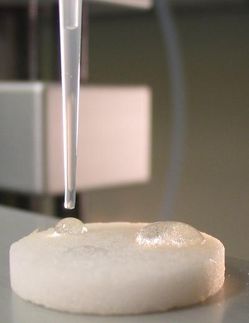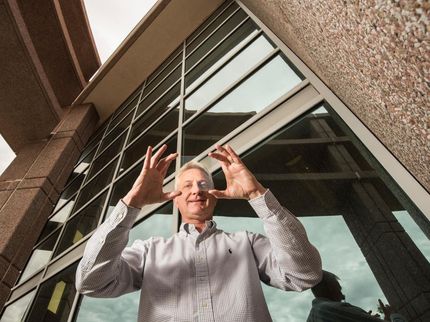Merck KGaA Acquires Exclusive Rights For Innovative Glass-Encapsulated Sunscreens
Merck KGaA and Sol-Gel Technologies Ltd. today announced that Merck has acquired exclusive worldwide distribution rights to use Sol-Gel Technologies Ltd. patented inert sol-gel glass microparticles to encapsulate its specialty sunscreen chemicals. Merck has acquired a minority of shares of Sol-Gel Technologies. Financial details of the agreement were not disclosed.
Merck is currently preparing for the market launch of a new generation of UV absorbers, the "Eusolex® UV-Pearls", which are based on the new technology.
This encapsulation of organic sunscreen chemicals provides new opportunities to cosmetic formulators. As the UV-Filters are encased in glass microparticles, incompatibilities between cosmetic ingredients can be prevented. In addition, Eusolex® UV-Pearls can provide photostable compositions and can be used in innovative oil-free sun or day care products.
"We're extremely pleased to be able to supply new solutions to our customers of the cosmetic industry," said Klaus Bischoff, Head of Merck KGaA's Cosmetics Business. "By using organic sunscreens entrapped in sol-gel glass, our customers are now able to create new products designated for sensitive skin."
The UV-Pearls will be manufactured at Sol-Gel's new facility in Bet Shemesh, Israel, using Merck's specialty sunscreen chemicals. As most organic UV-Filters can be encapsulated, this technology can be used for cosmetic products worldwide.
The world market for end consumer sun-care products is estimated at US-$ 3 billion and is growing annually as consumers become increasingly aware of the dangers caused by sun-exposure, such as skin cancer, premature skin aging and sunburns.
The proprietary sol-gel technology was developed at the Hebrew University of Jerusalem by Sol-Gel Technologies Ltd. co-founder Prof. David Avnir and his colleagues. Due to the relatively low temperature needed for the preparation of sol-gel matrices, most existing organic and bioorganic molecules can now be entrapped in inert sol-gel silica glass. Normally, glass is prepared at temperatures of about 1,000 degrees Celsius, which would incinerate the molecules.
Sol-Gel Technologies Ltd. (www.sol-gel.com) was founded in Bet Shemesh in 1997 with seed capital from a group of investors headed by Evergreen, a Canadian-Israeli venture capital fund. In early 2000, the company raised first-round capital from initial as well as new investors in order to finish development of its innovative sunscreen products and to build a manufacturing plant.
Most read news
Topics
Organizations
Other news from the department business & finance
These products might interest you
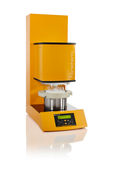
FIBRETHERM by C. Gerhardt
Automatic Fibre Extraction for Feed Analysis
FIBRETHERM from C. Gerhardt: Efficient – Precise – Method-Compliant
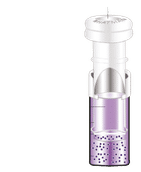
Mini-UniPrep™ by Cytiva
Improved HPLC Sample Preparation
Save 66 % sample preparation time and reduce costs by 40 %

Glass and quartz microfiber filter by Cytiva
Request a glass microfiber sample pack to meet your battery development needs
Delivering efficient and consistent results
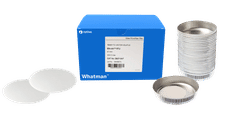
GF/C and 934-AH RTU (Environmental) by Cytiva
Meet wastewater regulations with the right filter
Streamline lab operations and ensure high-quality results
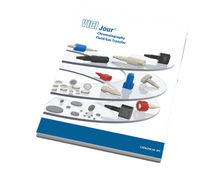
VICI Jour Katalog 15INT by VICI
The VICI Jour Catalog - Accessories for (U)HPLC and Liquid Handling
Capillaries, Tubing, Fittings, Filters, Safety-Products, Tools and much more
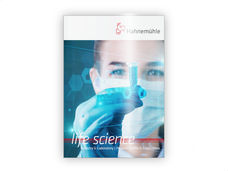
Hahnemühle LifeScience Catalogue Industry & Laboratory by Hahnemühle
Wide variety of Filter Papers for all Laboratory and Industrial Applications
Filtration Solutions in the Life Sciences, Chemical and Pharmaceutical Sectors

Whatman filtration product guide by Cytiva
New filtration catalog - a wealth of information on 286 pages
Discover the perfect filters for your laboratory application

Get the chemical industry in your inbox
By submitting this form you agree that LUMITOS AG will send you the newsletter(s) selected above by email. Your data will not be passed on to third parties. Your data will be stored and processed in accordance with our data protection regulations. LUMITOS may contact you by email for the purpose of advertising or market and opinion surveys. You can revoke your consent at any time without giving reasons to LUMITOS AG, Ernst-Augustin-Str. 2, 12489 Berlin, Germany or by e-mail at revoke@lumitos.com with effect for the future. In addition, each email contains a link to unsubscribe from the corresponding newsletter.
Most read news
More news from our other portals
Last viewed contents
Quantum holograms as atomic scale memory keepsake - Study demonstrates that quantum holograms could be a candidate for becoming quantum information memory

Gemtron de Mexico S.A. de C.V. - San Luis Potosí, Mexico

